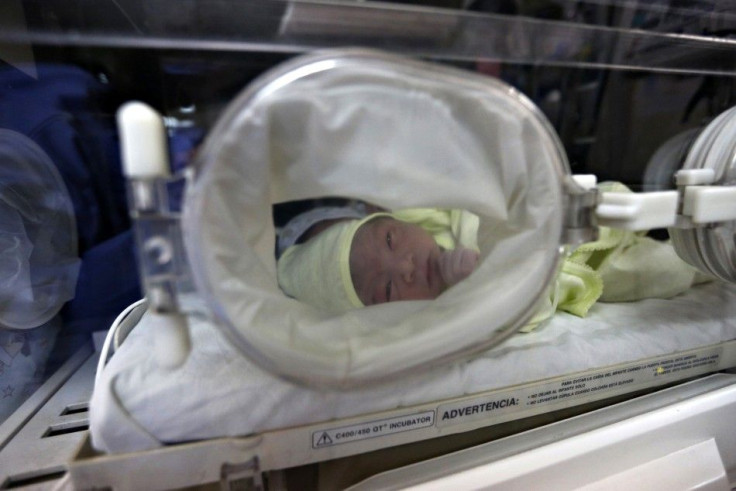Babies Born to Asian Fathers Underweight – Study

A new study by St. Michael's Hospital in Toronto has found that a father's ethnic background can significantly influence a child's weight at birth, and in this case, babies born to Asian fathers were found to be underweight.
Gathering data of 695,000 live births in Ontario between 2002 and 2009, researchers discovered that babies born to a foreign-born father and foreign-born mother weighed less than those born to two Canadian-born parents at about 6 per cent.
"Current birth weight curves--graphs used to plot how one baby's weight compares to others of the same age-assume that the parents are of Western European descent," researchers said in their study findings published on Monday in the Journal of Epidemiology and Community Health.
"That means many babies of an East Asian or South Asian mother may be classified as underweight, when in fact they are 'normal' for their ethnic groups."
Birth-weight is one of the essential yardsticks used to measure a baby's progress in its first days and weeks after birth.
Most existing birth weight curves used by doctors around the world are from parents of Western European descent.
"Knowing how ethnic backgrounds impact birth weights is particularly important in Canada, given the growing number of mixed race families. Researchers have developed the first "newborn weight curves" for specific ethnic groups across Canada, but using only the mother's ethnicity."
The study likewise looked if birth weights were affected by where the parents lived.
When immigrant parents live in neighbourhoods with a high concentration of people from their same ethnic background, their babies weigh less than those of Canadian-born parents. This is particularly true for male babies.
A baby is considered underweight if s/he was born less than 2.5kg (5.5lb) at birth. There are many causes of low birth weight, according to babycentre.co.uk, including:
- If the baby was born prematurely, and didn't have enough time to grow.
- If the mother twins or more, because they are often born early, and don't have as much room to grow in the uterus (womb) as single babies.
- If the baby inherited a medical condition.
- If there were problems with the placenta, such as pre-eclampsia, which reduces blood flow to your baby. This can restrict your baby's growth, because not enough oxygen and nutrients can get through.
- If the mother had high blood pressure in pregnancy, which can also affect the flow of blood through the placenta to your baby.




















